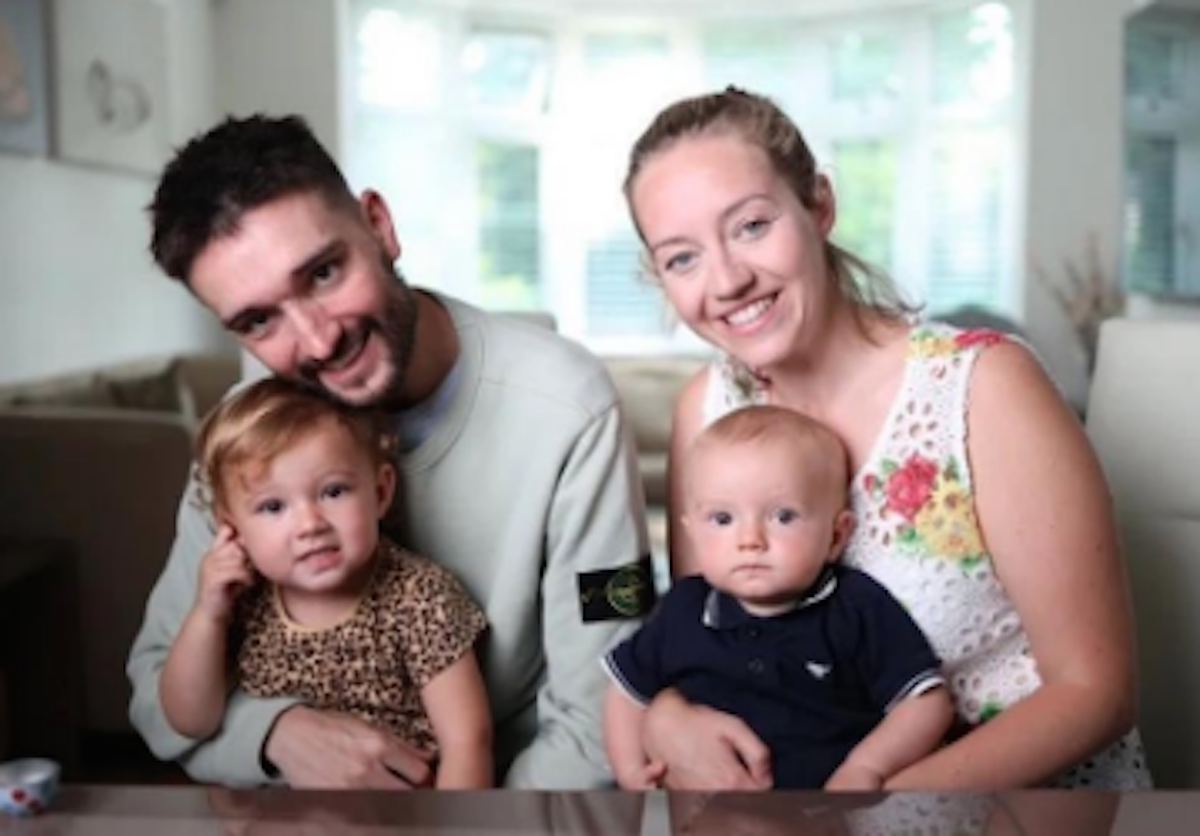Remembering Tom Parker & Understanding Brain Cancer
- Nearly one year after The Wanted singer Tom Parker’s death, Kelsey Hardwick, the 32-year-old wife of the late musician, has recounted the “precious” time she spent with Tom and urged others to “cherish” their loved ones this year.
- Back in October 2020, Tom announced he had been diagnosed with an "inoperable" brain tumor and was undergoing chemotherapy and radiotherapy treatments in an effort to shrink the tumor.
- Tom passed away at age 33 "peacefully" on March 30, 2022, and was surrounded by his family and friends.
- While glioblastoma is currently an incurable disease, new brain cancer treatments are providing hope.
- Clinical trials are also a potential option for extending life through experimental treatments. You search for trials using SurvivorNet's patient pathfinder.
Now, nearly one year after his death, Kelsey Hardwick, the 32-year-old wife of the late musician, has recounted the “precious” time she spent with Tom and urged others to “cherish” their loved ones this year.
Read More
“I'm angry, sad, lonely, wishing more than anything that none of this happened to us,” she said. “But it did and I'm grateful for the years we had, the love we shared and the babies we made. I'm so grateful for them. They bring me joy every single day.”
Kelsey continued, “So this Valentines I guess my message is that if you're lucky enough to spend it with someone you love, cherish it. Soak it up. Reflect on the importance of your relationship, the love you feel for each other and remember to honour it. You are blessed. We're all here to love and to be loved.”

She then wished anyone reading her emotional social media post to inspire others to “celebrate” love, even if someone doesn’t have a partner.
As she continues to remember how “lucky” she was to experience part of her life with Tom, she admitted that she still feels “loved,” and now more than ever by her fans, supporters, friends, and family.
Tom's Brain Cancer Battle
Back in October 2020, Tom announced he had been diagnosed with an "inoperable" brain tumor and was undergoing chemotherapy and radiotherapy treatments in an effort to shrink the tumor.
Tom passed away at age 33 "peacefully" on March 30, 2022, and was surrounded by his family and friends.
His death came just months after the singer announced that his brain tumor had shrunk and was under control.

Coping With Loss Of A Spouse And A Husband To Cancer
Losing a spouse to cancer, like Kelsey did, is devastating, and working through grief is an ongoing process.
It's normal to feel sad about changes in your life that might be brought on by a cancer diagnosis."Grief comes in waves," says Dr. Scott Irwin, a psychiatrist and Director of Supportive Care Services at Cedars-Sinai Medical Center.
"They're grieving the change in their life, the future they had imagined is now different."
Related: The Toughest ConversationsLosing a Spouse to Cancer
Some days can be tougher than others, but Dr. Irwin says talk therapy is helpful so it's important to reach out to your doctor, to a therapist or to support groups in your community.
Kelsey also shared previously shared the heartbreaking fact that her daughter Aurelia doesn't quite understand that her dad is gone and seems to think he is "on tour" and will be coming back, as he always would after gigs. Tragically, Kelsey has had to be really blunt about the fact that he won't be.
Supporting a spouse through their cancer treatment is difficult, and Kelsey stuck by Tom's side throughout. No matter what Tom was going through and the difficult days he faced, his positivity and humor shined through the entire time. Kelsey was his rock and kept the family operating at all times.
Telling Your Kids You Have Cancer: 'When it Comes to Your Kids, You Want to Protect Them'
"For my kids, for Tom, for my family, I think it's a really bad horrendous situation but staying positive is the only way to get through this," Kelsey had said of her journey as caregiver. "People are looking at me thinking 'how is she getting out of bed in the morning?' but I think it's the only way to get through this."
Last year, Kelsey admitted in an Instagram post, “I talk to the kids all the time about their daddy and I always will, and I hope that this means they know they can always talk to me about him and their own grief. A big thing I’ve learnt is that grief never leaves you; its not something you get over or that fades over time. It’s something that we grow around, and something that as the kids grow they will have to grow around.”
Glioblastoma Basics
Glioblastoma grows rapidly and is located in the brain, the most protected part of the body. This means that surgery should be performed swiftly and there are few drugs that can even reach the tumor given the impenetrable blood/brain barrier.
What's more, the cells are heterogeneous, meaning that each one must be individually targeted to slow tumor growth.
Additionally, surgery often can not remove all of the cancer because of the way the tumor burrows into the brain, so the tumor starts to grow again immediately after surgery.
The average survival rate is 15 months with treatment, and less than six if left untreated, according to the National Cancer Institute. And while there is a five-year-survival rate of approximately 6%, those individuals will never be cancer-free and must continue receiving radiation and chemotherapy for the rest of their lives.
How it Grows
Dr. Jon Weingart of the Johns Hopkins Comprehensive Brain Tumor Center explains that glioblastoma is a "grade 4 glioma brain tumor arising from brain cells called glial cells."
The grade refers to how likely the tumor is to grow and spread, with grade 4 being reserved for only the most aggressive tumors.
In the case of glioblastoma, "the tumor's cells are abnormal, and the tumor creates new blood vessels as it grows," explains Dr. Weingart. "The tumor may accumulate dead cells in its core."
And at this time, there is little more that is known about glioblastoma.
"Despite all the advances in treatment, we still don't understand what causes GBMs," says Dr. Weingart.
What is known is that glioblastoma is not hereditary, is diagnosed in adults more than children, and is slightly more common in men.
There are studies that have presented evidence that link the tumors to cell phone usage, exposure to radiation, or working in a rubber factory, but little else beyond that is known.
Symptoms of Brain Cancer
Symptoms of brain cancer really depend on the type of tumor, or glioma, but may include:
- Headache
- Nausea or vomiting
- Confusion/decline in brain function
- Memory loss
- Personality changes/irritability
- Difficulty with balance
- Urinary incontinence
- Vision issues
- Speech difficulties
- Seizures
- If you are experiencing any of these symptoms, don't delay going to get checked immediately, especially if symptoms are rapidly worsening. With brain tumors especially, treating the matter with urgency can help save from life-threatening damage.
Optimism With Glioblastoma
Glioblastoma is incurable, however, it is treatable and there is more and more hope with patients living longer lives these days.
Dr. Henry Friedman, a renown neuro-oncologist at Duke Cancer Center, previously told SurvivorNet that there is indeed more optimism surrounding this disease.
There Is New Hope for Those Fighting Glioblastoma; Using Polio & Immunotherapy to Fight Brain Tumors
Dr. Friedman and his Duke colleagues are investigating a new therapy that combines the modified poliovirus and immunotherapy to treat glioblastoma. "The modified poliovirus is used to treat this tumor by injecting it directly into the tumor, through a catheter. It is designed to lyse the tumor and cause the tumor cells to basically break up," he explained.
"I think that the modified poliovirus is going to be a game-changer in glioblastoma," Dr. Friedman added, "but I should also say that its reach is now extending into melanoma soon to bladder cancer."
Contributing: SurvivorNet Staff
Learn more about SurvivorNet's rigorous medical review process.

